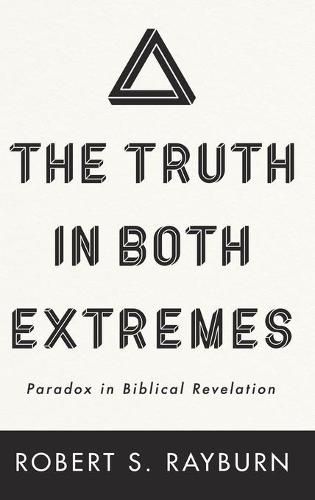Readings Newsletter
Become a Readings Member to make your shopping experience even easier.
Sign in or sign up for free!
You’re not far away from qualifying for FREE standard shipping within Australia
You’ve qualified for FREE standard shipping within Australia
The cart is loading…






This title is printed to order. This book may have been self-published. If so, we cannot guarantee the quality of the content. In the main most books will have gone through the editing process however some may not. We therefore suggest that you be aware of this before ordering this book. If in doubt check either the author or publisher’s details as we are unable to accept any returns unless they are faulty. Please contact us if you have any questions.
A phenomenon of biblical revelation that has provoked unending confusion and controversy is the penchant of the biblical writers to make assertions, clear and intelligible in themselves, that seem inconsistent with, if not the virtual contradiction of, assertions made elsewhere in the same Bible. What is more, the Bible essentially never acknowledges the paradoxes and never seeks to explain or resolve them. Readers of the Bible encounter such
contradictions
at every turn: in its theology, its description of Christian experience, and its ethical teaching. These unreconciled emphases lie beneath the theological disagreements that have long separated Christians from one another. Therefore, coming to terms with this feature of biblical communication is of great importance. While the existence of these many paradoxes in the Bible has long been recognized, rarely have Christians been taught to expect them or what to do when confronted with them. This brilliant feature of the biblical pedagogy is an accommodation to the limitations of the human intellect, serves to grant us access to the truth so far as we can comprehend it, forces us to face facts we would otherwise prefer to ignore, and makes of Christians themselves a unique complex of opposites.
$9.00 standard shipping within Australia
FREE standard shipping within Australia for orders over $100.00
Express & International shipping calculated at checkout
This title is printed to order. This book may have been self-published. If so, we cannot guarantee the quality of the content. In the main most books will have gone through the editing process however some may not. We therefore suggest that you be aware of this before ordering this book. If in doubt check either the author or publisher’s details as we are unable to accept any returns unless they are faulty. Please contact us if you have any questions.
A phenomenon of biblical revelation that has provoked unending confusion and controversy is the penchant of the biblical writers to make assertions, clear and intelligible in themselves, that seem inconsistent with, if not the virtual contradiction of, assertions made elsewhere in the same Bible. What is more, the Bible essentially never acknowledges the paradoxes and never seeks to explain or resolve them. Readers of the Bible encounter such
contradictions
at every turn: in its theology, its description of Christian experience, and its ethical teaching. These unreconciled emphases lie beneath the theological disagreements that have long separated Christians from one another. Therefore, coming to terms with this feature of biblical communication is of great importance. While the existence of these many paradoxes in the Bible has long been recognized, rarely have Christians been taught to expect them or what to do when confronted with them. This brilliant feature of the biblical pedagogy is an accommodation to the limitations of the human intellect, serves to grant us access to the truth so far as we can comprehend it, forces us to face facts we would otherwise prefer to ignore, and makes of Christians themselves a unique complex of opposites.